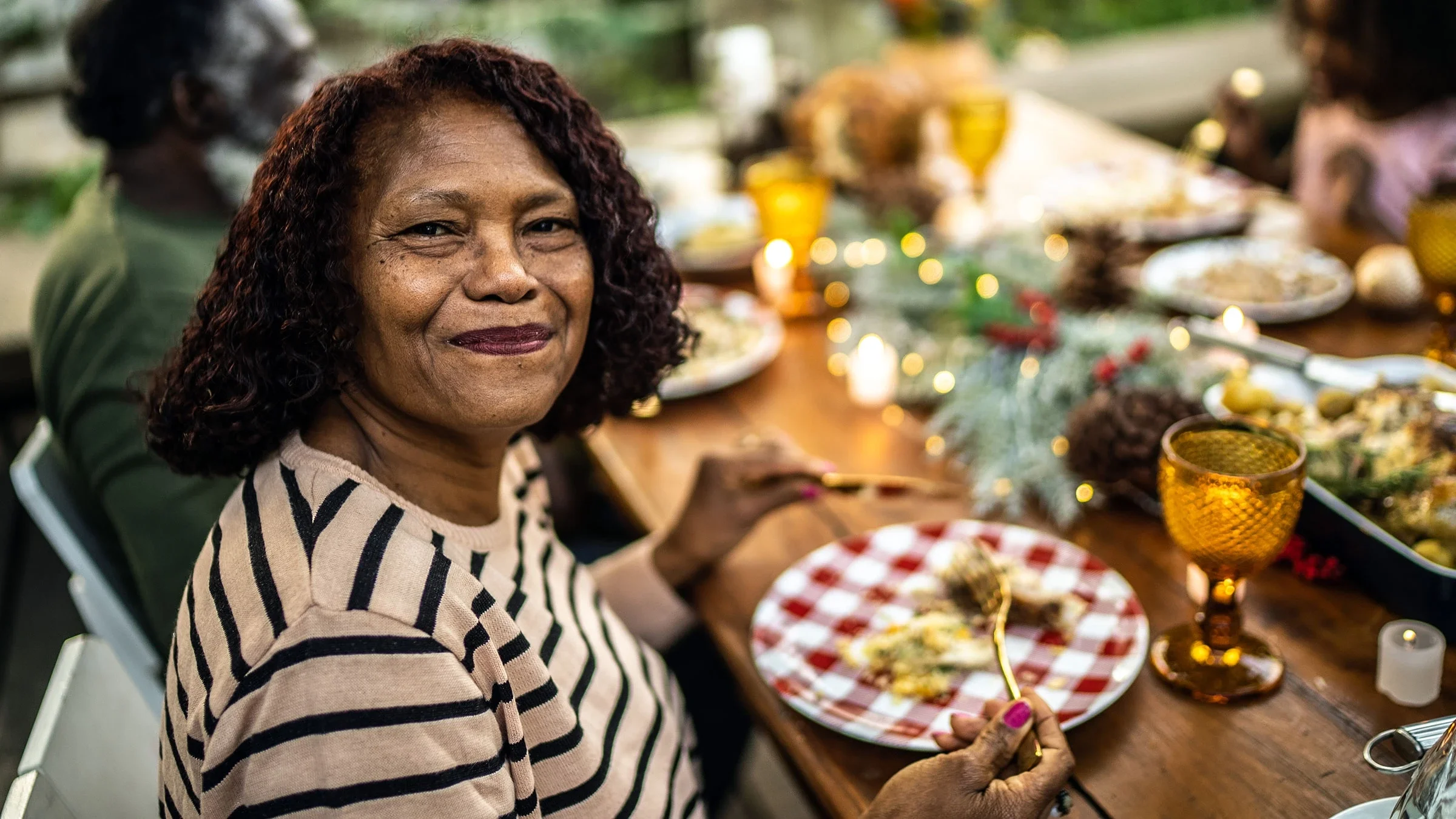Key takeaways:
It’s common to feel grief during the holidays. The loss of a loved one can make the holidays feel more overwhelming than usual.
Honoring old traditions, starting new ones, and acknowledging your emotions are a few of the ways you can manage your grief.
You may want to work with a grief counselor if you’re feeling isolated and struggling with depression or anxiety.
Grief is a normal response to loss in our lives. It’s often associated with the death of a loved one. But it can also happen when we experience other losses, such as the end of a marriage or job.
Over the holidays, feelings related to grief, like sadness and anger, can intensify. Here, we’ll look at 12 ways to cope with grief during the holidays, along with signs you may want to see a counselor.
How to handle grief during the holidays
If you’re grieving, here are some strategies to help you get through the holidays.
Search and compare options
1. Set boundaries
When dealing with loss, you may not feel up to celebrating the holidays like you have in the past. It’s OK to say “no” to invitations or set time limits like, “I’ll stop by for a few minutes.” Do what feels right for you.
2. Check in with your emotions
There’s no right or wrong way to grieve. You may feel sad one moment and angry the next. Or you might feel happy one day and then guilty for feeling happy. Take time to acknowledge your emotions and try not to avoid them. A grief journal or support group can help.
3. Accept that holidays are hard
“Holidays are tough in the best of circumstances,” Gina Moffa, LCSW, author of “Moving On Doesn't Mean Letting Go: A Modern Guide to Navigating Loss,” told GoodRx Health.
Moffa offers this advice: “If we know that holidays can be messy and hard and stressful, and [we] manage our expectations of ourselves, we can better navigate without the pressure of making it other than what it is.”
4. Honor old traditions
Some traditions may be therapeutic, while others may bring you pain. Participate in the ones you can handle this year and take a break from the rest.
5. Get creative with new traditions
A new tradition can honor your loved one while helping you heal. Consider the following ideas:
Bake your loved one’s favorite cookies or dessert for a holiday meal.
Kick off Christmas morning with their favorite holiday song.
Light a candle at the beginning of the holiday season.
Donate to a charity or buy a toy for a children’s program on your loved one’s behalf.
Ask family members and friends to jot down memories and drop them into a memory box.
When grief comes in waves, finding community can help. As a widow, school counselor Vicki Miesbauer knows about dealing with holiday grief. Read about how her community has been a lifeline for her.
Did you know that grief can affect your body too? Here’s what you need to know about the physical symptoms of grief, including fatigue, chest tightness, dizziness, and more.
Are you still grieving over your past? Grief can have many causes beyond the death of a loved one. Learn what it means to grieve over your past, plus what you can do to heal and move on.
6. Do things that bring you joy
Take time to enjoy moments that ease your grief. Spend an evening admiring decorated homes or diving into a holiday book or movie. Remember, it’s OK to smile and experience moments of joy. Your loved one would want you to.
“We’re still grieving, even if we have fun,” said Moffa. “It doesn’t go away — it’s just on the sideline for a moment.”
7. Practice self-care
Self-care during the holidays can help you manage stress and sadness. “I always tell my clients to take it back to basics,” said Moffa. “Make sure you’re drinking enough water, getting enough nourishment, and moving your body.”
Read more like this
Explore these related articles, suggested for readers like you.
Other ways to care for yourself include:
Taking a social media break
Making a scrapbook to remember your loved one
Planting a tree in their honor
Hosting a family game night
Journaling heartfelt memories
8. Get rest
Grieving can make you feel physically and mentally exhausted. Make sure you get plenty of sleep, prioritize your activities, and ask for help so you can rest.
9. Help those in need
“Volunteering can be a powerful way to remember that we’re not alone and that humans do really need one another,” said Moffa.
She recommends participating in a charity walk or fundraiser that feels important to you or connects you to your loved one: “This can be a great and simple start to creating a tradition that honors your loved one and gives you a sense of purpose.”
10. Be flexible
Having rigid expectations for yourself can be stressful. Instead, come up with multiple plans to handle events and activities. For example, if you’re traveling, Plan A might be to stay the entire weekend. Plan B may be to stay for 1 night. And Plan C might be to stay for half the day before returning home. Let your emotions and energy levels dictate what you can manage.
11. Accept help and support
If you’re feeling overwhelmed by holiday grief, accepting help and support can go a long way.
After all, community matters. “Surrounding ourselves with people who get us, who we trust, and with whom we can be our most authentic selves is how we can best stay connected when we’re feeling overwhelmed, fragile, and exhausted,” said Moffa.
It’s also OK to ask for more practical help too. For example, friends or family members might be able to pitch in with holiday shopping, decorating, and cooking. Decide what really matters to you and what’s realistic. Then let go of the rest, or ask someone else for help.
12. Share meaningful memories
It can sometimes feel good to share memories around the holidays. Here are some ideas:
Visit a holiday place that was meaningful to your loved one.
Share favorite stories with your friends and family members.
Look at pictures from past holiday times together with other people.
Replay music or movies that you remember enjoying with your loved one.
Put together a memory box filled with special mementos.
Create a scrapbook or memory book and invite friends and family to contribute.
Why is grief harder during the holidays?
Holidays are filled with constant reminders of our loss. There might be an empty seat at the table or an empty stocking above the fireplace. You might be surrounded by people celebrating while you’re hurting inside.
“What’s striking about the holidays for a griever is that with all of the pressure for meaning and happy moments and cheer, it also points out everything we don’t have,” said Moffa.
Feelings of loneliness and emptiness may overcome you. If so, you may want to talk to a grief counselor or seek out a support group.
When to seek help for grief counseling
“We should consider seeking professional support when we feel overwhelmed, alone, misunderstood, or simply unable to find a way to take a step forward,” said Moffa.
Meet with a grief counselor if you’re experiencing any of the following:
You’re isolating yourself.
Your emotions are becoming harder to manage.
You compare your grief experience to that of others and fear you’re “stuck” or not moving forward.
You feel guilty or find yourself ruminating on “what ifs” or “should haves.”
You don’t feel supported by the people around you.
Grief support and resources
It’s good to remind yourself that you’re not alone. Learning more about how others handle grief during the holidays and how it may help you process your loss. Check out these resources and groups for extra support:
Frequently asked questions
It’s hard to say. For many people, the weeks and months right after a loss are often the most difficult. And, for many people, the process can take a year or longer.
But, in reality, grief is different for everyone. It depends on many factors, including what type of loss you’ve experienced and your own life experiences. It’s impossible to say how grief will affect you until you experience it.
It can be hard to watch a loved one grieve. And though there’s nothing you can do to completely take the pain away, you can still show your support in many ways. Consider checking in on them regularly to let them know you care, or helping them with day-to-day tasks. And though it may seem simple, even just taking time to listen can go a long way.
The three C’s of holiday grief are strategies from the Hospice Foundation of America to help you get through the holidays. They stand for “choose, communicate, and compromise.” Here’s what they mean:
“Choose” means making your own choices about what to do during the holidays.
“Communicate” means talking with others about your choices and your needs.
And “compromise” means finding ways to meet in the middle when people want to handle things in different ways.
It’s hard to say. For many people, the weeks and months right after a loss are often the most difficult. And, for many people, the process can take a year or longer.
But, in reality, grief is different for everyone. It depends on many factors, including what type of loss you’ve experienced and your own life experiences. It’s impossible to say how grief will affect you until you experience it.
It can be hard to watch a loved one grieve. And though there’s nothing you can do to completely take the pain away, you can still show your support in many ways. Consider checking in on them regularly to let them know you care, or helping them with day-to-day tasks. And though it may seem simple, even just taking time to listen can go a long way.
The three C’s of holiday grief are strategies from the Hospice Foundation of America to help you get through the holidays. They stand for “choose, communicate, and compromise.” Here’s what they mean:
“Choose” means making your own choices about what to do during the holidays.
“Communicate” means talking with others about your choices and your needs.
And “compromise” means finding ways to meet in the middle when people want to handle things in different ways.
The bottom line
Grieving during the holidays can be hard. The season can remind you of your loss and trigger additional feelings of sadness or stress. To get through this time of year, try to surround yourself with a strong support system and be flexible with your time. Make sure you get plenty of rest and give yourself permission to say “no” to invitations.
You may want to meet with a grief counselor if you feel like you’re isolating yourself or your emotions are getting harder to manage. There are also online grief support groups where you can find others who are also dealing with loss. With support and self-care, you can make it through the holidays while grieving a loss.

Why trust our experts?



References
American Cancer Society. (2023). Grief and bereavement.
American Psychological Association (n.d.). Grief.
Children’s Hospital of Orange County. (2022). Coping with grief during the holidays.
Hospice Foundation of America. (2014). Three Cs for coping with grief.
Kohut, M. (2011). Making art from memories: Honoring deceased loved ones through a scrapbooking bereavement group. Art Therapy.
National Institute of Mental Health. (2024). Caring for your mental health.
Shear, M. K. (2015). Managing difficult times. Columbia Center for Complicated Grief.
U.S. Department of Veterans Affairs. (2022). Coping with grief in a season of joy.
















